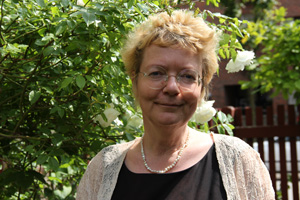The Hobbits and The evil Knight Kato’s heart
Commentary: We hear a lot about the evils of terrorism but very little about what is being doing to combat terrorism
By Helle Merete Brix
Translation: Geoffrey Cain
When the French police commissioner Dimitri Kalinine came home from the Bataclan music hall in Paris on the morning of the 14th of November last year after an exhausting investigation into the murderous attack that had happened there, he put his shoes on the terrace. A few days later he looked at them again. There were human remains on them, but he didn’t throw them away. They were ”holy relics”, shoes he had had since he left school.
Kalinine’s account of the horrors of that night is one of the texts in the journalist Zineb El-Rhazouis book: Thirteen. It takes its name from thirteen people who were caught up in the November massacre and later recounted what they had seen. Zineb was herself connected with Charlie Hebdo and still receives death threats from followers of Islamic State. She is tailed by bodyguards round the clock and has to move from one address to the other in order to shake off would-be assailants.
Surviving inside Bataclan
One of the survivors from Bataclan, Aurelia, whom I met in Paris early this year, tells the same story as Kalinine. She and a group of concert-goers took shelter behind a flimsily barricaded door.
Four members of the group were wounded, and Aurelia and the others dragged them along as they sought shelter from the bullets. Ensconced in their hiding place they could hear changes in the noise coming from the concert hall. There were fewer shots but they were more systematic.
”Now they’re executing people by shooting them in the head” said a young man in the group.
And that’s exactly what the terrorists were doing. Aurelia did her best to cheer up two eighteen year-olds:
”What’s the first thing you’ll do when we get out?” Happily she and the others in the group did get out – with the help of the police – and Aurelia was reunited with family and friends in her own home. As soon as she came in she ran towards the little welcome committee with outstreched arms – only to see them recoil in horror:
”I’d forgotten that I was covered with blood from the wounded. I had my clothes dry-cleaned afterwards, including the little coat that I always loved wearing at concerts. Terrorists can take our freedom from us – but they’re not having my little coat”.
The victims of terrorism
Since that day a lot has transpired. The wounded people were released from hospital a long time ago, and Aurelia herself devotes much of her time working in an organisation which help terror victims.
Aurelia´s refusal to abandon her beloved coat was a symbol of defiance. Like torch processions and flowers it´s a mild response against terrorism and so is helping victims of terrorism. Of course such actions cannot stand alone. But we can´t do without them.
It was in one of the organisations helping victims of terrorism that I met Jeromy, a young man who has spoken to and helped around 150 people hurt in the November 13th terrorist attack. These include relatives of deceased victims, others who were wounded and caterers. The organisations also help victims to get compensation. Whether they are ambassadors or plumbers, French citizens who have been hit by a terrorist attack or some other catastrophe in France or abroad are entitled to ask for compensation from a national fund.
The organizations helping victims offer psychological help and art therapy. Crowd funding has helped restore a bullet-ridden baker’s shop, and there are meetings where young people from France, Russia, Israel, Morocco and other places can compare their experiences. Not just once but over a number of years. And there is much more which we don’t hear very much about. Many of the people organizing these services have either themselves survived a terrorist attack or have lost a friend or relative in an attack.
The Hobbits and the knight Kato
In other words they are ordinary people who fate has prompted to do a special job. I’ve started to think of them as a species of Hobbits. Hobbits who help people who have come a bit too close to the wicked knight Kato’s heart. Hobbits of course are characters in Tolkien’s world-famous stories, while the wicked knight Kato is the epitome of everything evil in the world famous Swedish author Astrid Lindgrens story Mio, my Son.
In Mio, my Son the wicked knight Kato changes children into black birds or gives them hearts of stone. Hearts like his own. Today his castle lies in Raqqa – hopefully not for much longer – and his helpers are armed with kalashnikovs and suicide belts. The Hobbits are powerless on their own. The gates to the kingdom must be closed and of course the hobbits need help from goblins and elves with heavy weapons. And the evil Lord Voldemort – if we are to bring Harry Potter into the story – must be called by his name. Terrorism is terrorism.
But without Hobbits we can’t win. And what about Zineb, the author facing death threats? Earlier this year she published another book calling on people to destroy islamic fascism. It’s dedicated to atheists with Muslim backgrounds. This year Zineb also became a mother for the first time. One of her acquaintances aptly remarked that that was ”absolutely the best answer she could give the terrorists”.
